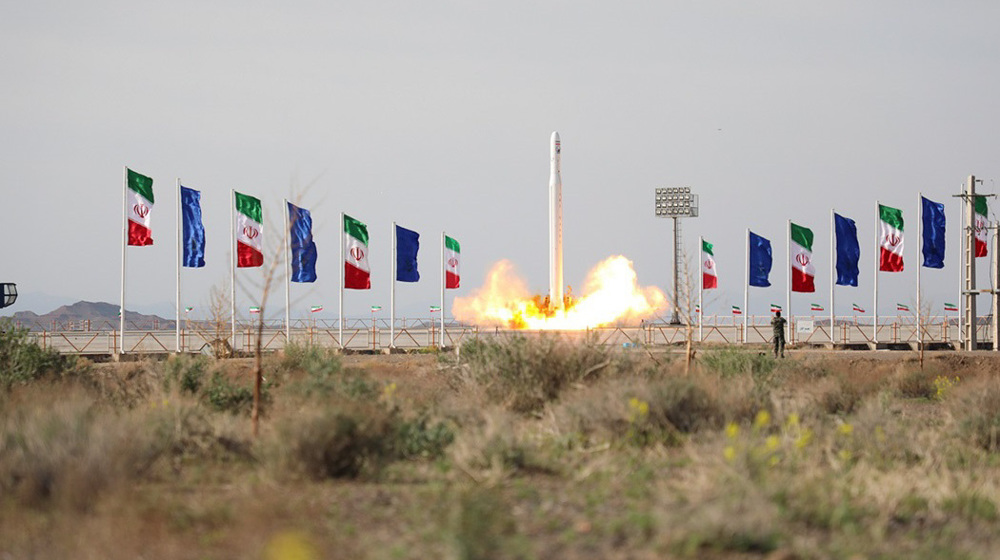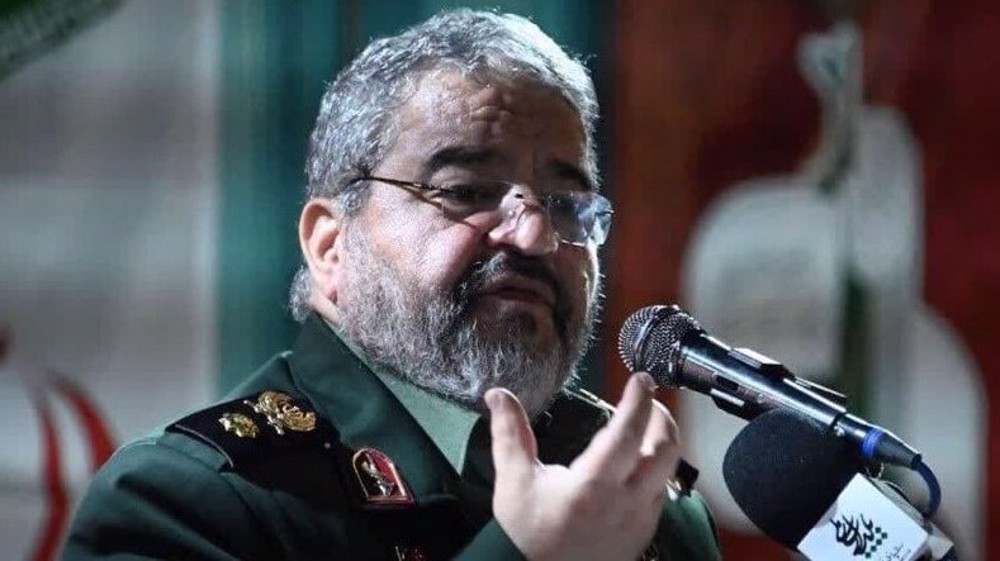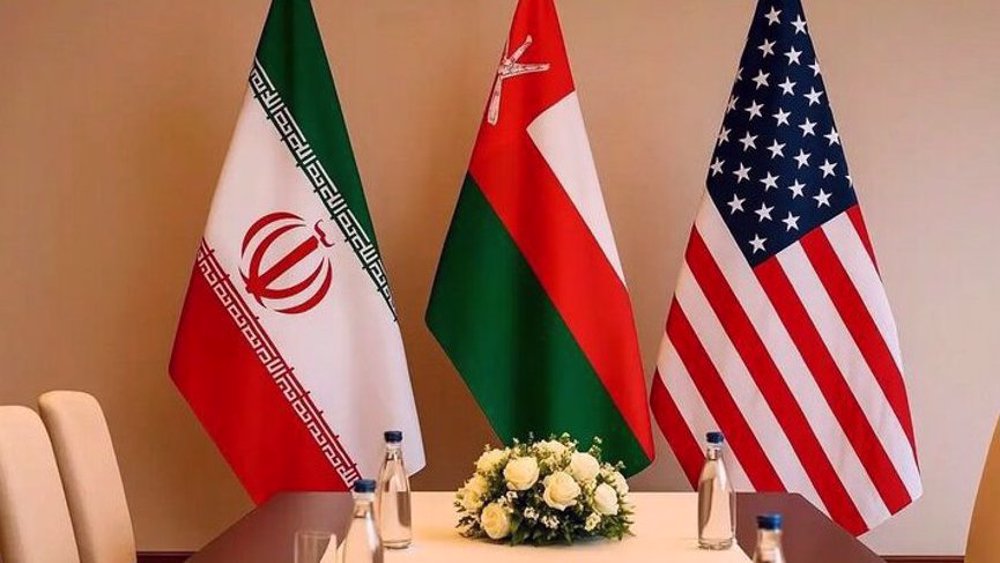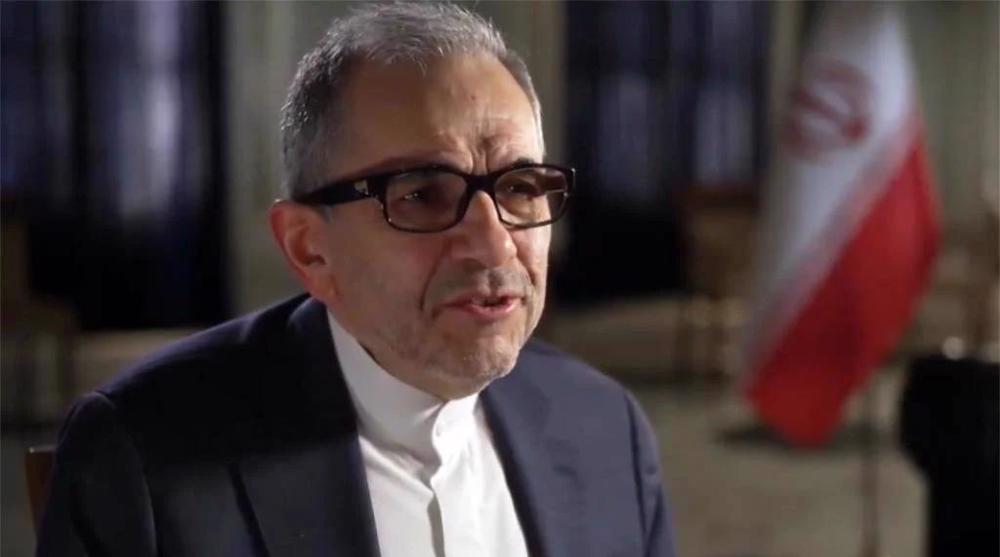Russia defends Iran’s peaceful space program against US opposition
Russia has defended Iran’s right to peaceful space technology, dismissing claims by the United States that the recent launch of the country’s first-ever military satellite into the orbit violates a United Nations Security Council resolution endorsing the 2015 nuclear deal between Tehran and major world powers.
Russia's Permanent Representative to the UN, Vassily Nebenzia, in a letter to Secretary-General Antonio Guterres and the Security Council on Thursday, said that “the ongoing attempts of the United States side to deprive Iran of the right to reap the benefits of peaceful space technology under false pretexts are a cause for serious concern and profound regret.”
He dismissed as “misleading” US allegations that the April 22 satellite launch by the Islamic Revolution Guards Corps (IRGC) is a violation of Security Council Resolution 2231, which ratified the landmark 2015 Iran nuclear deal – officially known as the Joint Comprehensive Plan of Action (JCPOA).
“Iran has never possessed nuclear weapons, nor does it possess these weapons now, nor, we expect, will it ever possess them in the future,” Nebenzia pointed out.
The Russian diplomat further highlighted that “Iran has been the most verified state by the International Atomic Energy Agency (IAEA)” ever since the JCPOA was adopted, and “it is an established fact that Iran does not possess, nor develop, nor test or use ballistic missiles designed to be capable of delivering nuclear weapons.”
Nebenzia’s remarks came in response to earlier claims by US Ambassador to the UN, Kelly Craft, that Iran’s “space launch vehicles incorporate technologies that are virtually identical to and interchangeable with those used in ballistic missiles designed to be capable of delivering nuclear weapons.”
Craft also urged the Security Council to strengthen existing sanctions on Iran.
Back on April 23, Spokesman for Iran's Foreign Ministry, Abbas Mousavi, said the Iranian people are legitimately entitled to make scientific and technological advances, especially in the field of aerospace.
“No resolution prohibits Iran from launching a satellite into space, and the US reference to Resolution 2231 is definitely irrelevant and at odds with reality. Astonishingly, Resolution 2231 is the very resolution that Washington violated by withdrawing from the JCPOA [in May 2018], and is yet clearly pressuring other independent countries to breach,” Mousavi noted at the time.
Iran’s first military satellite, dubbed Nour-1 (Light 1), was launched onboard the Qased (Messenger) satellite carrier in the early hours of April 22 from a location in Dasht-e Kavir, the central desert of Iran.
The satellite was placed into orbit 425 kilometers (265 miles) above the Earth’s surface.
Resolution 2231, which endorsed a 2015 multilateral nuclear deal between Iran and six other countries — from which the US later withdrew — “called on” Iran “not to undertake any activity related to ballistic missiles designed to be capable of delivering nuclear weapons, including launches using such ballistic missile technology,” but did not prohibit Tehran from launching satellites.
Furthermore, under other international law, including those governing space-related activities, all countries are allowed the right to the use of outer space for peaceful purposes.
Israeli producer of anti-Iran propaganda series ‘Tehran’ dies in Greece
Diplomacy and deterrence: Iran focused on reaching nuclear deal – without compromise
British Museum faces backlash for eliminating references to ‘Palestine' from displays
Global outage hits X users: Thousands report access issues
US warship seizes second Venezuelan oil tanker in Indian Ocean
VIDEO | IRGC Navy holds 'Smart Control of Strait of Hormuz' military drills
Explainer: Jaam-e Jam 1 – Iran’s giant leap into geostationary orbit and a new broadcasting era
Iran says entered talks with US with 'result-oriented approach'














 This makes it easy to access the Press TV website
This makes it easy to access the Press TV website